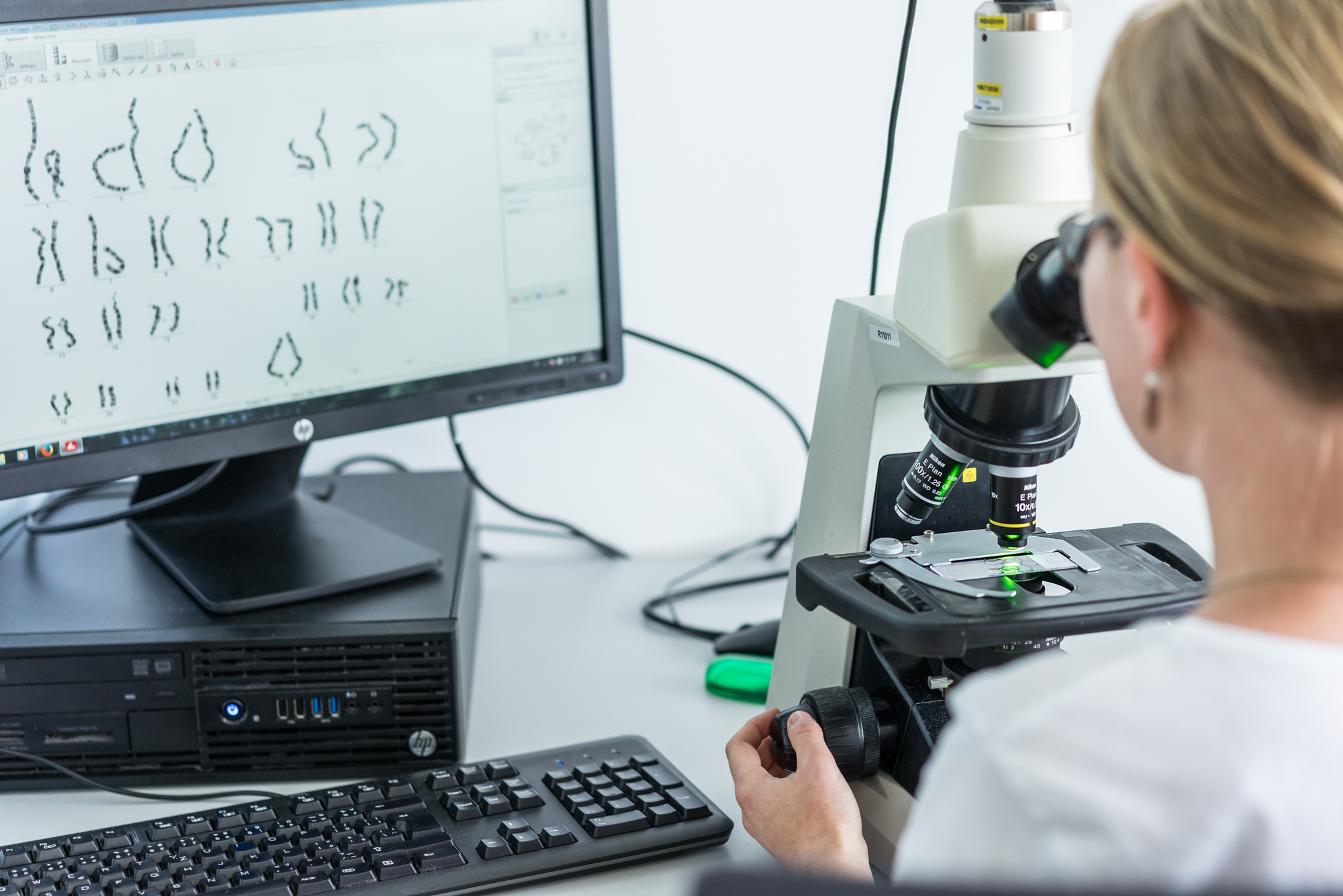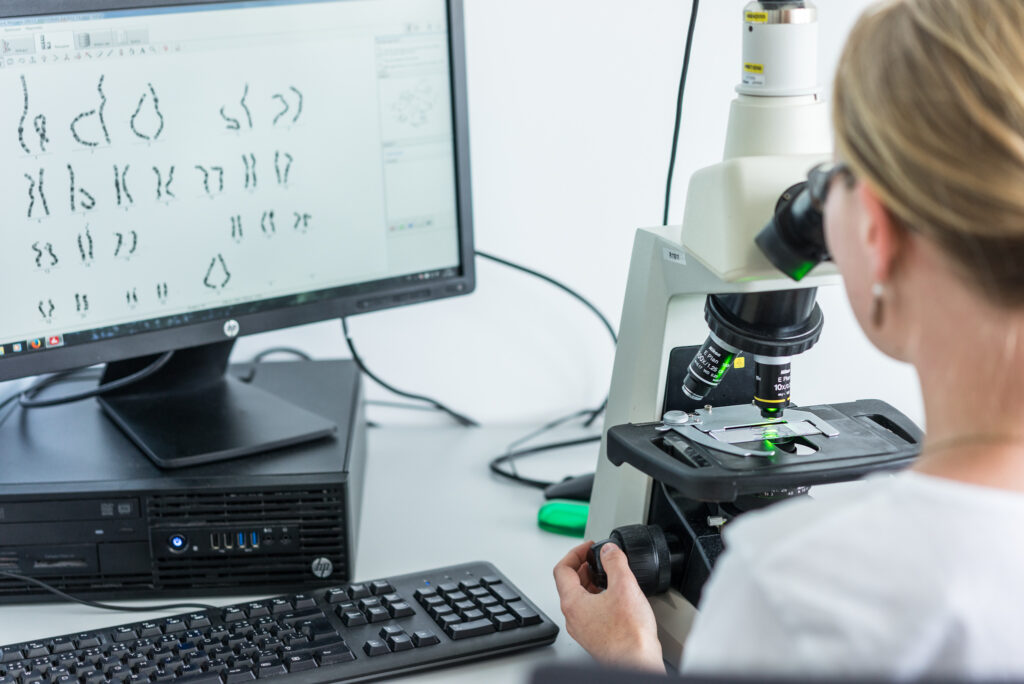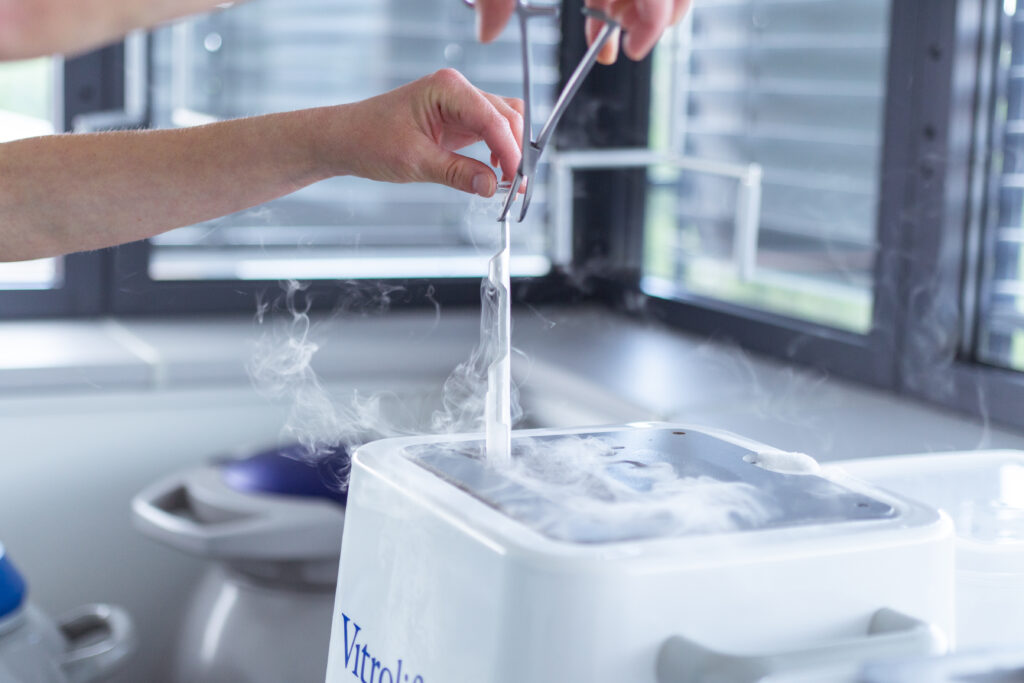Genetic makeup is the foundation of our uniqueness. Testing it not only uncovers our origins but also reveals hidden threats and risks embedded in our genes. Genetic testing can be a key tool in preventing serious diseases. What genetic disorders exist, and what can genetic tests reveal?
What is a genetic disorder, and what can genetic testing detect?
A genetic disorder is a condition caused by changes in DNA, which can be either inherited or arise spontaneously. Modern genetic testing provides insight into our genetic makeup, helping to identify predispositions to certain diseases and the risk of passing on gene mutations to future generations. This examination plays a crucial role in preventing and diagnosing genetic disorders that can significantly impact quality of life.
Which genetic disorders are hereditary?
Hereditary genetic disorders are passed from parents to offspring and can be caused by mutations in one or more genes. These disorders include:
- Dominant diseases, where one parent is both a carrier and affected by the disease.
- Recessive diseases, where both parents are carriers without symptoms, often unaware of the condition until they have an affected child who inherits mutations from both parents.
In contrast, non-hereditary genetic disorders result from new gene mutations. These mutations are not present in the parents but appear for the first time in the developing child. Some conditions can have both hereditary and spontaneous origins.
The Most Common Genetic Disorders
The most frequent chromosomal abnormality, often occurring spontaneously during egg or sperm division, is Down syndrome (trisomy 21).
Among the most widespread recessive hereditary diseases are: Cystic fibrosis, Spinal muscular atrophy, Deafness, Fragile X syndrome and Phenylketonuria.
Other common genetic disorders include:
- Neurofibromatosis
- Marfan syndrome
- Huntington’s disease
- Muscular dystrophy
- Metabolic disorders
- Hereditary breast and ovarian cancers (BRCA1 and BRCA2)
How to Test for Genetic Disorders and Why Screening is Important
Genetic Testing Before Pregnancy Planing
Basic genetic screening includes karyotyping, which determines an individual’s chromosomal makeup. Chromosomes play a vital role in cell function and division, and their correct number and structure are essential for health.
Couples and individuals can also undergo carrier screening for monogenic recessive diseases PANDA.
Most people are carriers of 2 to 10 monogenic genetic diseases, such as cystic fibrosis or spinal muscular atrophy.
While carriers themselves do not experience symptoms, couples who are both carriers face a 25 % risk of having a child with a severe genetic disorder.
Another crucial test is Preimplantation Genetic Testing (PGT), which allows the selection of a healthy embryo free from specific genetic burdens before implantation during IVF.
Thank you Repromeda Brno for the amazing chance to become a complete family. Thanks to the preimplantation genetic testing we had a healthy baby girl Martinka.
Read the full story
Genetic Testing During Pregnancy
During pregnancy, prenatal tests such as amniocentesis or non-invasive prenatal testing (NIPT) can detect genetic abnormalities in the fetus.
How Genetic Testing Works at Repromeda
At Repromeda, we prioritize individualized care and cutting-edge technology. For most genetic tests, a simple blood sample is sufficient. However, for embryo testing, a few cells are analyzed directly from the embryo.
Karyotyping
To determine the karyotype, white blood cells are isolated from a blood sample and cultured to increase their number. These cells are then chemically treated to stop division at a stage where chromosomes are most visible. The chromosomes are stained, examined under a microscope, and arranged into pairs to detect any genetic abnormalities.
PANDA (PANel Diagnostic Analysis)
For the PANDA test, blood samples from both partners are analyzed. Our geneticists examine specific genes, compare mutated genes between partners, and determine the genetic compatibility of the couple.
PGT (Preimplantation Genetic Testing)
EOn days 5-6 of embryo development, a few cells are removed for testing, while the embryo itself is frozen. The genetic lab then screens the cells using karyomapping, a technique capable of excluding nearly any rare hereditary disease.
This test can be performed as early as the 10th week of pregnancy using only a blood sample from the mother. Additionally, with 99% accuracy, it can determine the baby’s sex, which is crucial for detecting X-linked genetic disorders.
PrenatalAdvance
This test can be performed as early as the 10th week of pregnancy using only a blood sample from the mother. Additionally, with 99% accuracy, it can determine the baby’s sex, which is crucial for detecting X-linked genetic disorders.
Make an appointment for genetic testing before conception and make sure your baby will be healthy.
How Long Does Genetic Testing Take?
The duration of genetic testing depends on the type of test. At Repromeda, we strive to deliver fast and accurate results to minimize waiting times:
- Karyotyping results take approximately 2–3 weeks.
- PANDA test results (including a genetic mutation analysis) are available in about 4 weeks. During counseling with a clinical geneticist, you will discuss any variants and risks that may have been found.
- PGT results using Karyomapping or OneGene PGT take approximately 3 weeks.
- PrenatalAdvance test results are ready within 5–7 days.
Our genetic laboratory is a leader in the field. Our experts have extensive experience and utilize state-of-the-art technology.
If you are considering genetic testing, do not hesitate to contact us. Our mission is to help you on your journey to a healthy baby.



